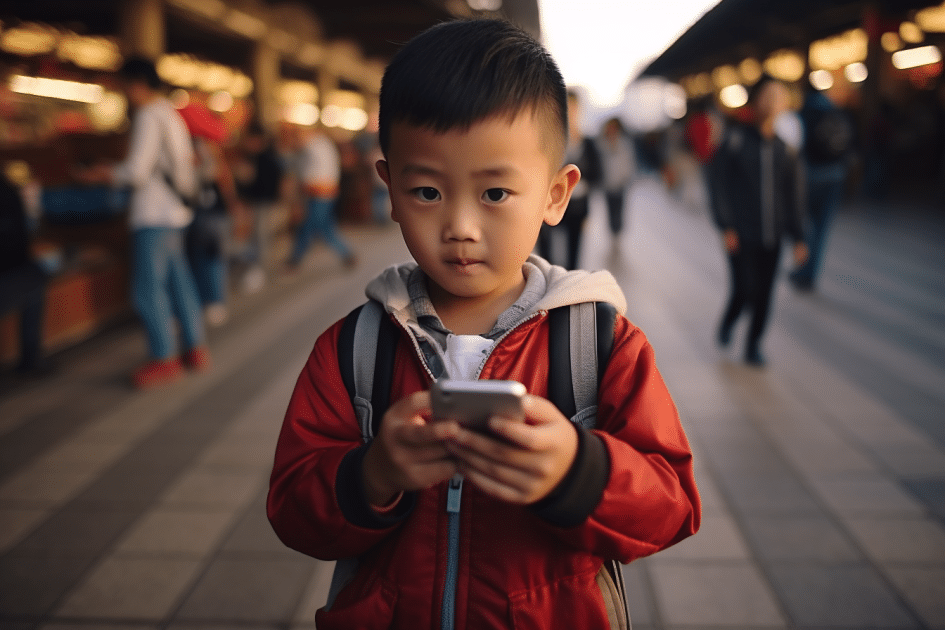The value of technology shares in China, including major companies like Alibaba and Bilibili, took a hit following a proposal from the country’s cyberspace regulatory authority to limit smartphone use for those under 18 years old.
The draft legislation stipulates that children should be restricted to a maximum of two hours of phone usage per day. This news comes four years after enforcing video gaming limits on minors within China, the world’s second-largest economy.
The plan laid out by the Cyberspace Administration of China (CAC) also entails banning internet access on mobile devices for children from 10 PM to 6 AM local time.
Furthermore, the CAC’s proposal obligates stakeholders in the industry, such as mobile device manufacturers, app developers, and app stores, to establish a “minor mode” feature to regulate usage limits according to the child’s age. For instance, those between 16 and 18 will be permitted two hours of screen time a day, whereas children under eight will be restricted to a mere eight minutes.
The proposal is currently open for public review. According to Ray Wang, the founder and CEO of Silicon Valley-based consulting firm Constellation Research, it is anticipated that tech giants will likely be accountable for ensuring compliance with these regulations, much as they were with previous gaming restrictions.
“Despite possible loopholes where children might obtain the passwords to their parents’ devices, the overall sentiment is that the implementation of gaming restrictions has been relatively successful,” Wang commented.
Shares of Alibaba saw a more than 3% reduction in Hong Kong, while Bilibili shares dropped close to 7%. As of mid-day Thursday, Alibaba shares were trading about 2% lower, and Bilibili shares had decreased by 0.5%. In contrast, Tencent, which saw a 3% dip, observed a slight increase of 0.1% in Hong Kong.
China’s push for such measures is in response to concerns over video game addiction and its negative impact on children’s health. In 2019, a curfew was imposed on online gaming for minors, followed by further restrictions in 2021, limiting children to no more than three hours of gaming a week.
This regulatory landscape has posed significant challenges for Chinese technology companies. The heightened regulation has allowed the US to surpass China as the world’s leading gaming market in terms of revenue, as per the research firm Newzoo.
The move to regulate tech usage among minors is part of a broader effort by the Chinese government to manage digital addiction and protect the health and well-being of its younger population. However, these measures have and likely will continue to have, an economic impact on the country’s tech industry, affecting domestic and global market dynamics. As these new restrictions come into effect, both tech giants and investors alike must brace for potential changes in the digital landscape.




